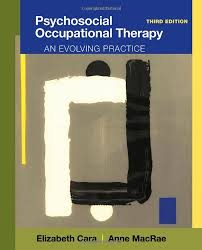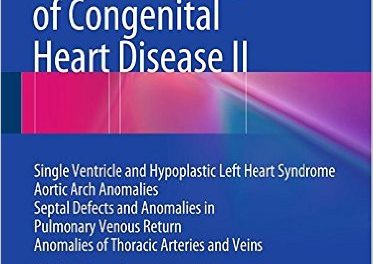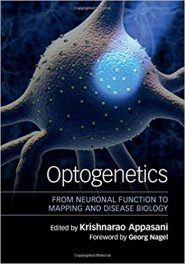 Authors: Elizabeth Cara and Anne MacRae
Authors: Elizabeth Cara and Anne MacRae
Reviewers: Diane R. Anderson, Patricia A. Donovan, Tamera Keiter Humbert, Eleanor Anne (Ellie) Raffen, and Peter Talty
Publisher: Delmar – Cengage Learning – 998 pages
Book Review by: Nano Khilnani
This book is for occupational therapists who deal with patients having a mental illness or a mental health issue. It is a practice-based text that contains case studies on psychosocial occupational therapy in clinical practice, enabling practitioners and students as well, to learn with clients in real-life contexts.
New chapters have been written for this edition on the following subjects:
- Assessment and outcome measurement
- Managing pain in occupational therapy
- Mental health of infants
- Mental health research in occupational therapy
- Occupational therapy in the military
- Psychosocial occupational therapy in the school setting
- Recovery perspectives
More than 30 experts in various areas within occupational therapy contributed articles to this lengthy volume, making it a very valuable resource from a practical standpoint, and not just from academic or theoretical perspectives.
The coverage of this text is extensive. With 26 chapters organized into seven parts, the reader can look up, browse and delve deeply into a given subject and find answers to the questions he or she has in mind.
Here is an overview of the seven parts in this book:
- Understanding the Person in Context
- Theoretical Concepts
- Diagnosis and Dysfunction
- Mental Health Across the Lifespan
- Mental Health with Physical Disorders
- Occupational Therapy Intervention in Mental Health
- Specialized Roles for Occupational Therapy in Mental Health
Most of the 26 chapters within the seven sections named above pertain to mental health. There are chapters on the behavioral, cognitive and psychosocial aspects of patients. Dysfunctions such as schizophrenia and anxiety, mood and personality disorders are amply covered. Each chapter has an author and some have two or several authors.
The authors point out very importantly at the outset of this book that the first three chapters in Part 1 “set the stage for the remainder of this book by addressing the changing dynamics of mental health intervention with a recovery perspective and the personal, cultural and temporal contexts of the individual within a physical and social environment.”
They explain that it is crucial to understand the individual in the proper context within his or her environment. They write: “Understanding the person in context and the relationship of environment to mental health is not only the basis for psychosocial occupational therapy intervention, it is also critical to advancing the knowledge base of the profession through meaningful research.
Each chapter contains the same features as found in others, enabling the reader to go through the material in a systematic way. The chapter begins with a list of Key Terms, a Chapter Outline, a brief Introduction to the content that is found in that chapter, Clinical Terminology that presents words – that will be used in that chapter- in bold letters, and provides definitions.
Real-life cases are presented. Each Case Illustration is followed by a Diagnosis (and Diagnostic Controversy, if any) of the patient involved in that particular case. Tables are also provided that show overviews and inter-relationships of various factors. For example, Table 6-1 in chapter 6 of Part III demonstrates the relationship of various factors in Part 1 – Functioning and Disability – on the one hand and those in Part 2 – Contextual Factors – on the other hand.
At the end of each chapter, a Summary of its contents is provided, followed by Review Questions, and a list of References. There is also a list of Suggested Resources subdivided into Medical Terminology and Websites.
This is an excellent book on the growing area of psychosocial orders within the field of occupational therapy. It has good coverage of the major issues, is systematically organized and written in clear, easy-to-read language once medical terms are understood.
The authors, content reviewers, and the contributors have done a marvelous job, and hearty congratulations are in order for all of them.
Elizabeth Cara received her Certificate of Proficiency in occupational therapy from the University of Pennsylvania. She also holds a Bachelor of Arts degree in History from Santa Clara University, a Master of Arts degree in Clinical Psychology from John F. Kennedy University and a PhD in Clinical Psychology from the Fielding Graduate University. For the last 20 years she has been a Professor of Occupational Therapy at the undergraduate and graduate levels.
Dr. Cara’s clinical experience is in mental health with all ages and settings. Her scholarly interests include psychobiography, clinical supervision and fieldwork training, infant and family mental health, group dynamics, interpersonal communication and clinical skills, and contemporary psychoanalytic relationship psychotherapy. social disorders. She is the co-creator of a successful vocational program, Community Vocational Enterprises, in San Francisco, California. Dr. Cara is a native of California.
Anne MacRae received her B.A. degree in Education from Antioch College, Yellow Springs, Ohio, and her M.S. degree in occupational therapy from San Jose State University. She also has a PhD in Human Science from Saybrook Institute, San Francisco. Dr. MacRae is a professor at San Jose State University in California. In addition to teaching, she also supervised the campus-based psychosocial occupational therapy clinic for 20 years.
Her other clinical experience includes inpatient acute psychiatry, partial hospitalization programs, and home health care. She is also a recipient of multiple Fulbright Fellowships and engages in international consultation about occupational therapy and mental health care. Her current research and scholarly interests include cultural diversity, phenomenology, occupational justice, recovery perspectives, environmental issues in intervention, community mental health, and functional deficits of psychiatric symptoms.







